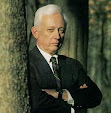That was just the beginning. For fifty years I have had the best toys. I have three PCs and a MacBook Air. I am on my fifth iPhone, and my fourth iPad. I carry my fifty years of collected music and photographs, an encyclopedia, a library, and a dozen movies in my pocket. It just keeps getting better. It is more fun than electric trains.
One of my favorite toys was the IBM Advanced Administrative System, AAS, five IBM 360/65s and a 360/85. It was so much fun that I often forgot to eat or even go home at night. However, on AAS one of my responsibilities was to manage the development of the access control system. It was great fun to do and fun to talk about. Serious people came to White Plains to hear me. I was invited to Paris, Vienna, Amsterdam, London, Helsinki, and Stockholm to talk about my fun and games, about how we provided for the confidentiality, integrity, and availability of our wondrous system.
However, as seems to happen to us all, I grew up, and finally old. My toys, fun, and games became serious. Some place along the way, most of the computers in the world were stitched together into a dense fabric, a network, into a world-wide web. While still entertaining, this fabric had become important. It supports the government, the military, industry, and the economy.
Without any plan or intent, driven mostly by a deflationary spiral in cost and exploding utility, the fabric had become infrastructure, part of the underlying foundation of civilization. It had become peer with water, sewer, energy, finance, transportation, and government. Moreover, it had become THE infrastructure, the one by which all of the others are governed, managed, and operated.
We build infrastructure to a different standard than toys or anything else not infrastructure. Infrastructure must not fall of its own weight. It must not fall under the load of normal use. It must not even fall under easily anticipated abuse and misuse. In order to prevent erroneous or malicious operation, the controls for infrastructure are reserved to the trained operators and from the end users.
No special justification is required for this standard. The Romans built their roads, bridges, and aqueducts, such that. with normal maintenance, they would last a thousand years. And so they have. The Hoover Dam and the Golden Gate Bridge were built to the same standard. With normal maintenance, and in the absence of unanticipated events, they will never fail. (They may be decommissioned but they will not fail.) No one quibbled with Henry Kaiser over the cost or schedule for the dam.
However, our fabric was not driven by design and intent but by economics. No technology in history has fallen in price and grown in power as fast as ours. While we tend to think of it in terms of its state at a point in time. it continues to grow at an exponential rate. Its importance can hardly be appreciated, much less over-stated.
Given the absence of design and intent, it is surprisingly robust and resilient. While not sufficient for all purposes to which we might wish to put it, it is sufficient for most. With some compensating design and intent, it can be made sufficiently robust for any application.
One word on "easily anticipated abuse and misuse." On September 12, 2001, what could be easily anticipated had changed forever.
As security people, we are responsible for the safe behavior, use, content, configuration, and operation of infrastructure. As IT security people, we are responsible for the only international infrastructure, the public networks. As users, we are responsible for not abusing, misusing, or otherwise weakening it.
Note that ours is the only infrastructure that, at least by default, contains weak, compromised, or even hostile components and operators. It is the only one that, by default, has controls intended for the exclusive use of managers and operators right next to those for end users. Our infrastructure also, by default, connects and exposes the controls of other infrastructure to most of our unprivileged users. It is our job to compensate fro and remediate these conditions.
Our roles, responsibilities, privileges, and special knowledge give us significant leverage over, and responsibility for the infrastructure of our civilization. Everything that we do, or fail to do, strengthens or weakens that Infrastructure. That is why we are called professionals and are paid the big bucks.




